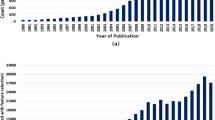
Overview
- Offers advanced feature learning methods, such as sparse learning, and deep-learning-based feature learning
- Includes also traditional and cutting-edge feature learning methods
- Contains the detailed theoretical analysis of each feature learning method
Part of the book series: Information Fusion and Data Science (IFDS)
Access this book
Tax calculation will be finalised at checkout
Other ways to access
About this book
This book covers the essential concepts and strategies within traditional and cutting-edge feature learning methods thru both theoretical analysis and case studies. Good features give good models and it is usually not classifiers but features that determine the effectiveness of a model. In this book, readers can find not only traditional feature learning methods, such as principal component analysis, linear discriminant analysis, and geometrical-structure-based methods, but also advanced feature learning methods, such as sparse learning, low-rank decomposition, tensor-based feature extraction, and deep-learning-based feature learning. Each feature learning method has its own dedicated chapter that explains how it is theoretically derived and shows how it is implemented for real-world applications. Detailed illustrated figures are included for better understanding. This book can be used by students, researchers, and engineers looking for a reference guide for popular methods of feature learning and machine intelligence.
Similar content being viewed by others
Keywords
- feature learning
- machine learning
- pattern recognition
- data analysis
- principal component analysis
- linear discriminant analysis
- sparse learning
- low rank decomposition
- tensor-based feature extraction
- machine intelligence
- semantic feature learning
- principal component analysis
- feature engineering
- data-driven science, modeling and theory building
Table of contents (12 chapters)
-
Front Matter
-
Back Matter
Authors and Affiliations
About the authors
Haitao Zhao is currently a full professor at the School of Information Science and Engineering, East China University of Science and Technology (ECUST), Shanghai, China. His research interests include feature extraction, representation learning, feature fusion, classifier design and their applications in image processing and computer vision.
Henry Leung is a professor of the Department of Electrical and Computer Engineering of the University of Calgary. His current research interests include information fusion, machine learning, IoT, nonlinear dynamics, robotics, signal and image processing. He is a Fellow of IEEE and SPIE.
Zhihui Lai was a Postdoctoral Fellow at the Bio-Computing Research Center, Shenzhen Graduate School, Harbin Institute of Technology (HIT) in 2011-2013. He is now a full professor at the College of Computer Science and Software Engineering, Shenzhen University.
Xianyi Zhang is a postgraduate at the School of Information Science and Engineering, East China University of Science and Technology (ECUST), Shanghai, China. His research interests include pattern recognition, machine learning and image processing.
Bibliographic Information
Book Title: Feature Learning and Understanding
Book Subtitle: Algorithms and Applications
Authors: Haitao Zhao, Zhihui Lai, Henry Leung, Xianyi Zhang
Series Title: Information Fusion and Data Science
DOI: https://doi.org/10.1007/978-3-030-40794-0
Publisher: Springer Cham
eBook Packages: Physics and Astronomy, Physics and Astronomy (R0)
Copyright Information: Springer Nature Switzerland AG 2020
Hardcover ISBN: 978-3-030-40793-3Published: 04 April 2020
Softcover ISBN: 978-3-030-40796-4Published: 04 April 2021
eBook ISBN: 978-3-030-40794-0Published: 03 April 2020
Series ISSN: 2510-1528
Series E-ISSN: 2510-1536
Edition Number: 1
Number of Pages: XIV, 291
Number of Illustrations: 17 b/w illustrations, 109 illustrations in colour
Topics: Data-driven Science, Modeling and Theory Building, Machine Learning, Computational Intelligence, Pattern Recognition, Signal, Image and Speech Processing, Image Processing and Computer Vision



